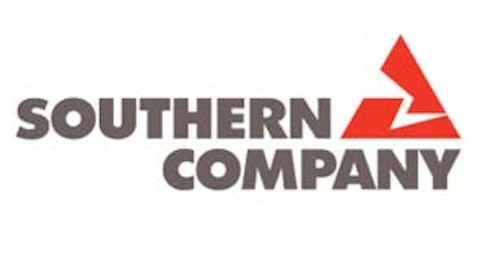Two regulatory decisions in Illinois and Pennsylvania this week paved the way for utilities to power through with new infrastructure upgrades. As the economy oozes upwards, smart grid and energy efficiency projects can create leaner, greener utilities. Let’s take a closer look at this week’s three winners.
The Illinois advantage
On Wednesday, the Illinois House of Representatives overturned Gov. Pat Quinn’s veto of a bill allowing regulated utilities to (at least partially) pass on “smart” infrastructure investment costs to consumers.
Ameren Corp (NYSE:AEE) and Exelon Corporation (NYSE:EXC) both operate utilities in the Prairie State, and both have been longtime backers of Senate Bill 9.
“Members of the General Assembly have been steadfast in calling for the development of an energy delivery system that meets today’s needs and prepares the state for future economic growth,” said Richard J. Mark, president and CEO of Ameren Illinois, in a statement. “I want to thank the Illinois Senate and House of Representatives for their support. This action will benefit consumers, create jobs, and inject new life into economies in Central and Southern Illinois.”
Jobs may be a political talking point, but Ameren is most interested in capital expenditures. The utility plans to spend $640 million by 2023 for much-needed repairs, as well as increasingly efficient technology. Ameren Illinois will replace cables and strengthen power poles, but it will also install smart grids and deploy new technology to more quickly detect and isolate grid outages.
Ameren Corp (NYSE:AEE) expects its overall rate base to enjoy a 7% compound annualized growth rate over the next four years, but Mark made clear that consumers won’t be left out to dry. In 2014, Ameren estimates that delivery rates for its residential customers should drop by around $30 million.

Source: Ameren Q1 2013 Earnings Presentation
Exelon Corporation (NYSE:EXC) has also been expectantly awaiting Senate Bill 9’s approval. During its latest earnings call, CEO Christopher Cane noted, “Once enacted on, we can start executing our plan of grid modernization included in the installation of the smart meters and improving the reliability of the infrastructure.”

Powering Pennsylvania
Heading east, PPL Corporation (NYSE:PPL) announced Thursday that the Pennsylvania regulators have approved a new “Distribution System Improvement Charge” for its 1.4 million customers.
The charge will hit bills on July 1 and will equal 0.44% of a consumer’s monthly distribution charges. Average residential users can expect a $0.20 increase in their monthly bills. Those pennies will add up to cover more than $135 million in new facilities and equipment this year, with more than $700 million in planned capital expenditures for the next five years.
“The distribution system improvement charge allows us to address system reliability issues and provide strong customer service by investing more in our delivery system,” said Dennis Urban, finance and regulatory affairs VP for PPL Corporation (NYSE:PPL)Electric Utilities. “With the new charge, we can more efficiently plan our work and make system improvements to strengthen reliability and better serve our customers.”

